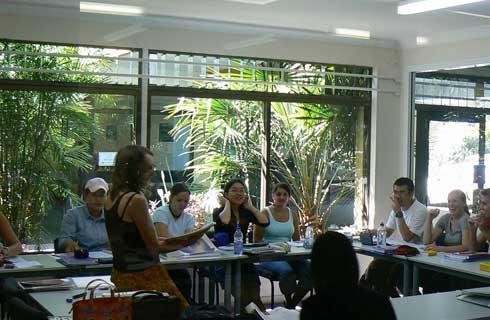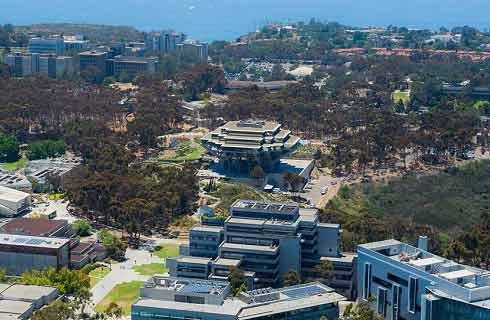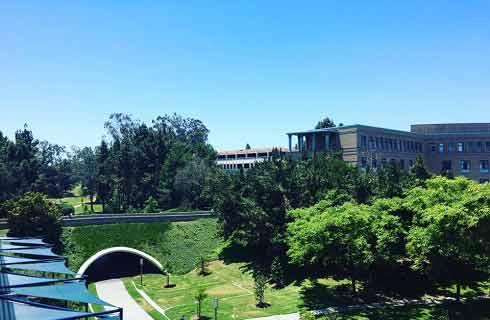理学学士和护理硕士-药理学
Bachelor of Science and Master of Nursing - Pharmacology

学历文凭
Dual Degree

专业院系

开学时间

课程时长

课程学费

国际学生入学条件
IDP—雅思考试联合主办方

雅思考试总分
- 雅思总分:
- 托福网考总分:
- 托福笔试总分:
- 其他语言考试:
CRICOS代码: 069880D
申请截止日期: 请与IDP联系 以获取详细信息。
课程简介
The combined Bachelor of Science and Master of Nursing program cultivates the critical thinking skills and breadth of the sciences alongside the expertise and experience to become a registered nurse. It provides a wide range of career opportunities across both clinical and non-clinical settings. As a science and nursing student, you will learn from our leading academics from across the sciences and healthcare disciplines. The Bachelor of Science emphasises fundamental principles and discovery research underpinned by critical analytical capabilities. You can major in one of many areas of science, with elective units allowing you the flexibility to explore different branches and interests. You will gain an understanding of the impact of nursing practice within local and global health contexts, and across changing healthcare systems. You can complete this combined degree program in four years of full-time study, after which you will graduate with two qualifications. Upon graduating will be eligible to apply for registration with the Nursing and Midwifery Board of Australia. With a diverse range of experience and expertise, you will be highly employable in both clinical and non-clinical settings. Ranked 15th globally by subject area, the University of Sydney is a world leader in nursing education and research. Our Faculty of Science is ranked in the top 50 in the world for natural science, and you will learn in our state-of-the-art facilities including the Sydney Nanoscience Hub and the Charles Perkins Centre, with its focus on obesity, diabetes and cardiovascular disease.Pharmacology is concerned with the study of drugs and the key role they play in the treatment of most human diseases. Increasingly, doctors rely on drugs not only to cure disease, for example antibiotics and infections, but also in the prevention of diseases, such as lipid lowering drugs and heart disease. A major in pharmacology will give you a thorough knowledge of the discovery, development and testing of drugs, and its importance to the future of medical research and practice. In this major you will learn about the mechanisms of drug action, drug absorption, distribution, metabolism and elimination, drug activity and chemical structure, the effect of drugs on body systems, the toxic effects of drugs and more.With a major in pharmacology, you could pursue a career as a pharmacologist who discovers, designs and tests drugs. Some pharmacologists extract new drugs from plants and other living sources, some design and synthesise new chemicals for use as drugs. You can find pharmacology roles in many different organisations: basic pharmacology research occurs in both universities and in pharmaceutical companies. Pharmacologists play key roles in both the conduct an analysis of these trials and in reviewing them for government before a drug is allowed on to the market. A special group of pharmacologists - toxicologists - play a particularly important role in the evaluation of the safety of drugs and other chemicals which may affect humans.
相关申请
 预科
预科 奖学金
奖学金 实习机会
实习机会 在校学习
在校学习 跨境学习
跨境学习 校园授课-线上开始
校园授课-线上开始 在线/远程学习
在线/远程学习
开学时间&学费
学费信息仅供参考,请与IDP联系以获取详细信息
| 开学时间 | 时长 | 学费 | 地点 |
|---|
学校排名

世界排名60
数据源:
泰晤士高等教育世界大学排名
关于悉尼大学

位于澳大利亚首都的悉尼大学是举世闻名的机构,一直名列世界前20名大学之列(2024年QS世界大学排名)。在2022年QS毕业生就业能力排名中,悉尼大学的毕业生也位居澳大利亚第一和世界第四。来自世界各地的学生进行本科和研究生水平的学习。学生可以在澳大利亚最广泛的课程和学科中选择。该大学提供超过400个学习领域供学生选择,大学5门学科位居世界前十名,另外还有28门学科位居世界前50名(2022年QS世界大学学科排名)。通过实习和工作经验以及通过大学海外项目进行国际交换(包含在学位内的可选项目),从而增加了学生的就业机会。学生将在支持和启发的环境中学习和发展,大学会提供给学生大量的服务,这包括学术和专业支持,残疾服务,保密咨询服务,健康服务还有财务援助办公室提供服务。学生还可以参加由悉尼大学学生会(USU)运营的250多个校园俱乐部和社团,从体育运动到文化团体应有尽有。校园内有许多可供学生使用的设施,其中包括带奥林匹克规格温水游泳池的健身室和攀岩中心。此外,还有美术馆、博物馆、咖啡馆、餐厅和酒吧供学生休闲。学生还可以使用南半球最大的学术图书馆。悉尼是世界上最优秀的城市,根据《经济学人》2021年安全城市指数显示,悉尼被评为第四大最安全的居住地,当地的学生体验得以丰富和提升。
本校相关课程

Graduate Certificate in Clinical Dentistry - Advanced Restorative
学历文凭
Graduate Certificate
开学日期
课程费用总额


Graduate Diploma in Clinical Dentistry - Advanced Restorative
学历文凭
Graduate Diploma
开学日期
课程费用总额


城市和区域规划研究生文凭
学历文凭
Graduate Diploma
开学日期
课程费用总额


教育硕士
学历文凭
Masters Degree (Coursework)
开学日期
课程费用总额


专业工程学硕士(电力)
学历文凭
Masters Degree (Coursework)
开学日期
课程费用总额


专业工程学硕士(电信)
学历文凭
Masters Degree (Coursework)
开学日期
课程费用总额

其他相关课程

生物技术硕士
 昆士兰大学
昆士兰大学泰晤士高等教育世界大学排名:80
学历文凭
Masters Degree (Coursework)
开学日期
课程费用总额


理学学士(荣誉学位)
 迪肯大学
迪肯大学泰晤士高等教育世界大学排名:206
学历文凭
Bachelor Degree with Honours
开学日期
课程费用总额


理学硕士(研究)-应用研究
 南昆士兰大学
南昆士兰大学学历文凭
Masters Degree (Research)
开学日期
课程费用总额


生物技术硕士
 墨尔本大学
墨尔本大学学历文凭
Masters Degree (Coursework)
开学日期
课程费用总额


应用科学副学士
 皇家墨尔本理工大学
皇家墨尔本理工大学学历文凭
Associate Degree
开学日期
课程费用总额


理学学士(纳米技术)
 弗林德斯大学
弗林德斯大学泰晤士高等教育世界大学排名:307
学历文凭
Bachelor Degree
开学日期
课程费用总额










